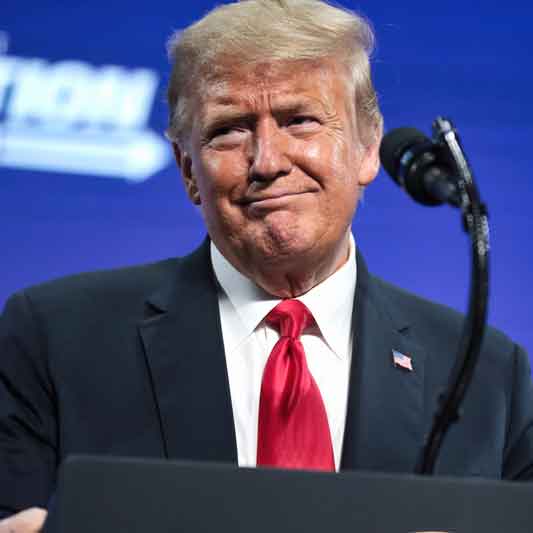President Donald Trump’s comments about White House Press Secretary Karoline Leavitt have sparked widespread criticism after he made unusually personal remarks about her appearance during an interview with Newsmax host Rob Finnerty.
During the August 1 interview, Trump described Leavitt as having become a star and commented on her physical attributes. “It’s that face. It’s that brain. It’s those lips, the way they move,” the president stated, adding that her lips move like she is a machine gun. He also declared that he does not think anybody has ever had a better press secretary than Leavitt and described her as amazing.
The remarks came in response to Leavitt’s earlier claim at a White House press briefing that Trump should be awarded the Nobel Peace Prize. The 27-year-old press secretary had asserted that Trump brokered on average about one peace deal or ceasefire per month during his six months in office and that it was well past time for him to receive the prestigious award.
Leavitt made history earlier this year as the youngest White House press secretary in United States history when she was appointed to the position for Trump’s second term beginning in 2025. A native of New Hampshire, she previously worked as a presidential speechwriter and assistant press secretary during Trump’s first administration.
Born and raised in a Roman Catholic family, Leavitt graduated from Central Catholic High School in Lawrence, Massachusetts in 2015 before attending Saint Anselm College in New Hampshire. She earned a bachelor’s degree in communications and politics in 2019, founding the college’s first broadcasting club. During her college years, she interned at Fox News during the 2016 presidential election and worked at Hearst Television WMUR-TV.
Before joining the White House staff, Leavitt was a congressional candidate for New Hampshire’s first district in 2022. She married 59-year-old real estate developer Nicholas Riccio in January 2025, shortly before Trump’s inauguration. The age gap and her rapid political ascent have drawn public attention alongside her career achievements.
The president’s comments have generated significant backlash on social media platforms, with many users describing his remarks as creepy, uncomfortable, and inappropriate. Critics compared the tone to past controversies and questioned the professional boundaries in political discourse. Some social media users noted that such comments about a fellow employee in any other workplace would result in immediate termination and potential legal action.
Multiple users referenced connections to Jeffrey Epstein in their criticism, while others called out media outlets for not addressing Trump’s remarks more aggressively. The reaction highlighted concerns about what many perceived as a double standard in political discourse and professional conduct standards.
Supporters of both Trump and Leavitt defended the president’s high regard for his press secretary, emphasizing her youth, intelligence, and capable handling of the challenging role. They characterized the praise as recognition of her professional accomplishments and communication skills.
The interview also covered several other topics, including Trump’s positions on potential pardons for Ghislaine Maxwell and Sean Combs, his views on former President Barack Obama and former Secretary of State Hillary Clinton regarding alleged Russian interference in the 2016 election, and his stance on Federal Reserve Chair Jerome Powell’s future.
During the same period, Trump has continued to express support for Leavitt’s advocacy on his behalf. At a recent press conference on August 11, he referred to her as his superstar and called her out from behind a curtain while discussing plans to address crime in Washington, D.C. When asked if she was doing a good job, he invited her to approach the podium, though she maintained some distance during the interaction.
Leavitt has been known for her strict enforcement of Trump administration policies, including the naming of the Gulf of America, and her fierce defense of Trump’s presidency. She has made multiple public statements calling for Trump to receive the Nobel Peace Prize, citing his alleged diplomatic successes in various international conflicts and ceasefire negotiations.
The controversy surrounding Trump’s comments continues to generate discussion about appropriate professional conduct and the boundaries between personal and professional praise in political settings. The incident has drawn renewed attention to workplace harassment policies and standards of conduct for federal employees.

